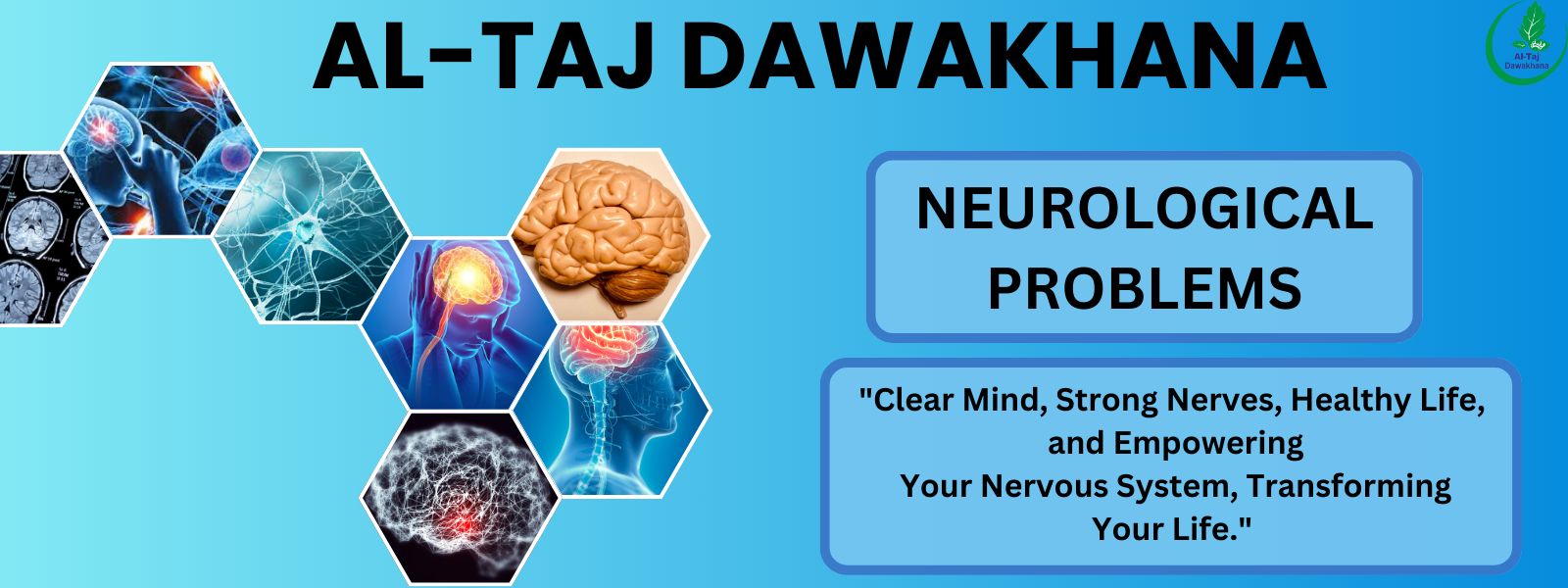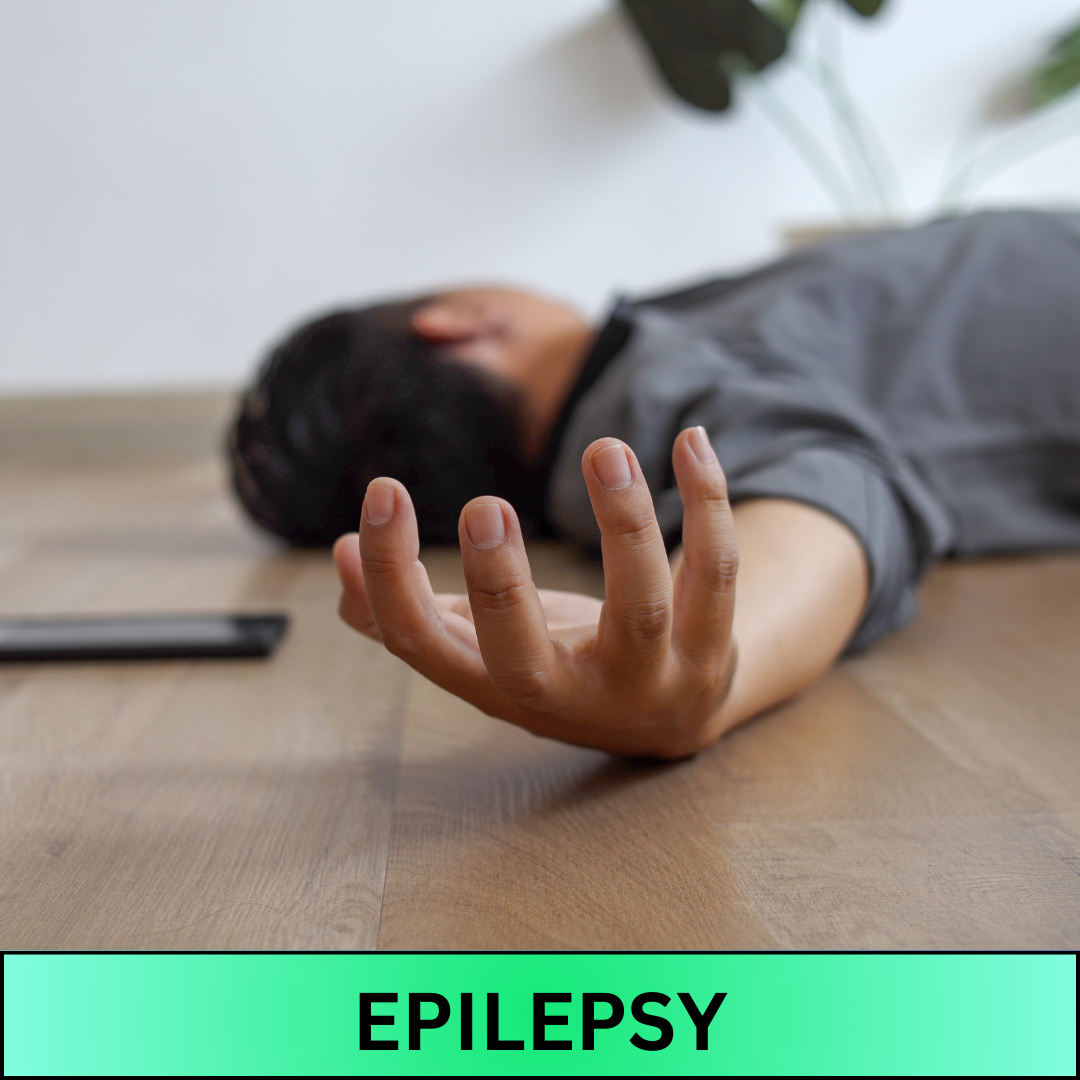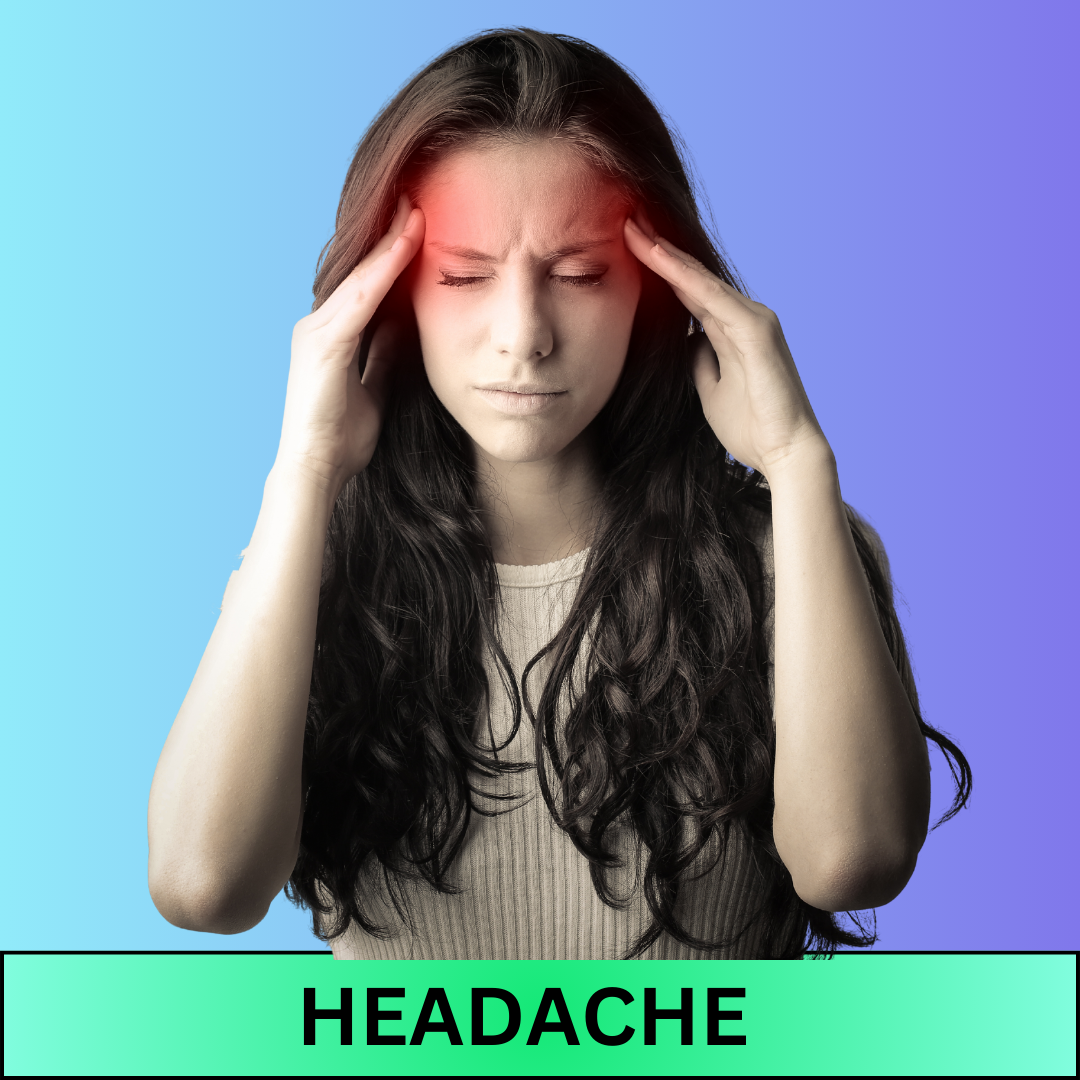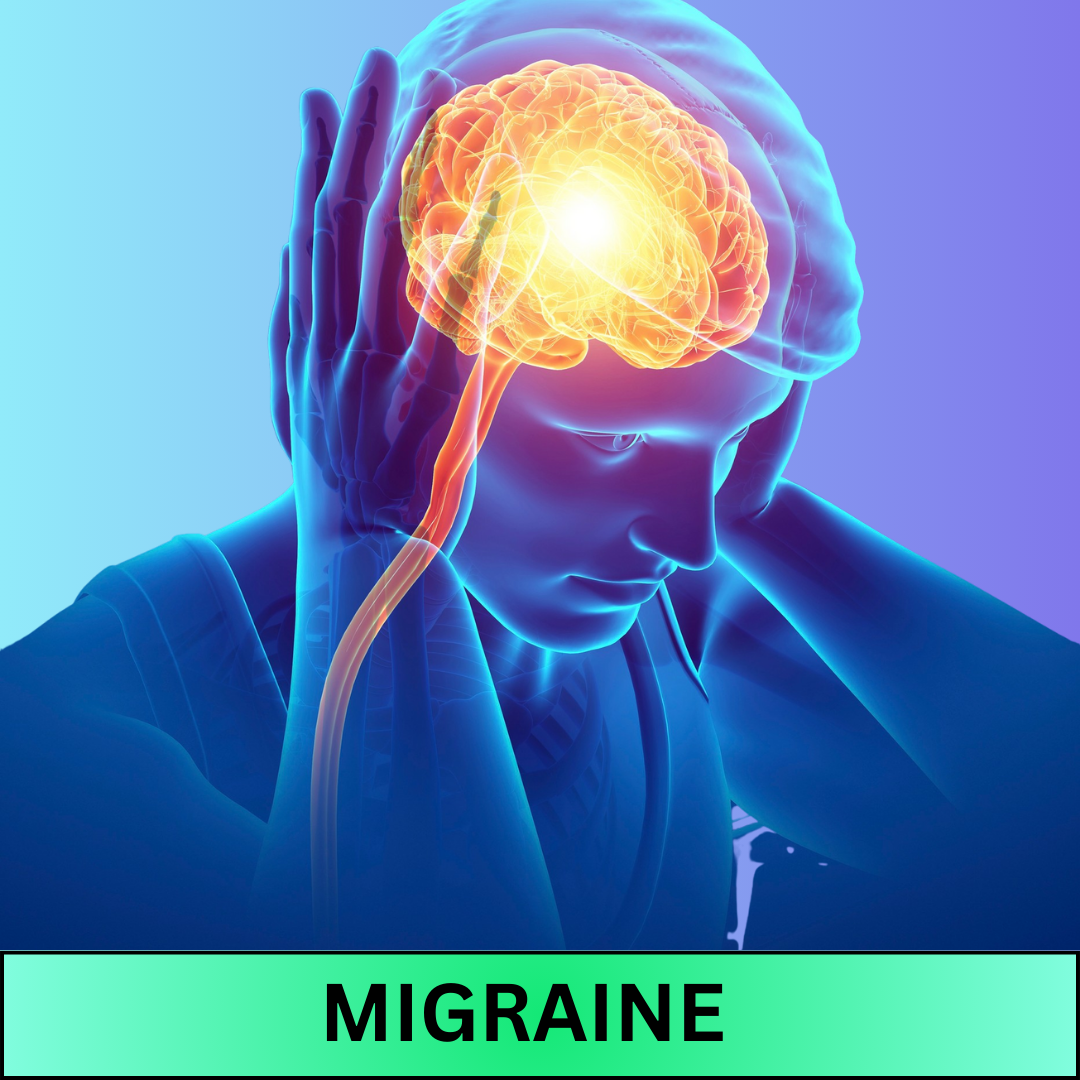

In Unani medicine, neurological problems are often referred to under terms such as "Amradh al-A'asab" (diseases of the nerves) or "Amradh al-Mukh" (diseases of the brain). These terms encompass a wide range of neurological disorders, including conditions that affect the nervous system, brain, and spinal cord.
1. Weakness of the Nerves :This refers to conditions where there is a weakening of the nerves, which can lead to symptoms like numbness, tingling, muscle weakness, and a lack of coordination. It may be associated with conditions like neuropathy or multiple sclerosis.
2. Insanity or Psychosis: Junun is the term used for psychotic disorders, where the brain is severely affected, and the individual may experience hallucinations, delusions, or confusion. The Unani approach attributes this to imbalances in black bile (sauda) or phlegm (balgham).
3. Paralysis or Hemiplegia :This refers to partial or total paralysis of the body, often caused by a stroke or nerve injury. It is considered a neurological condition in Unani, where the nervous system imbalance and humoral disturbances are believed to play a key role.
4. Epilepsy or Seizures : Qad refers to epilepsy, where an individual experiences sudden and recurrent seizures. Unani attributes this condition to an imbalance in the nervous system, often caused by an excess of black bile or disturbance in the brain's humors.
5. Headaches and Migraines :While headaches can also be caused by stress or emotional factors, they are considered neurological in Unani, especially in cases of severe migraines, which are thought to result from an imbalance in the humors affecting the brain.
6. Tremors or Parkinsonism : This condition refers to tremors, shaking, or loss of control over movements, similar to Parkinson's disease. Unani attributes these tremors to an imbalance in the nervous system and an excess of cold humors affecting the muscles and nerves.
7. Nerve Pain or Neuralgia :This is intense pain along the course of a nerve, typically caused by inflammation or injury. In Unani, it is linked to the excessive accumulation of phlegm (balgham) or yellow bile (safra), which affects the nerves.
8. Cognitive Disorders :These refer to conditions that impair thinking, memory, and decision-making, such as Alzheimer's disease or other forms of dementia. In Unani, these are often attributed to weakness of the brain (Da'fa al-Mukh) and disturbances in the humors.
Unani treatment for neurological disorders focuses on restoring balance in the body's humors (especially phlegm, yellow bile, and black bile) and improving the health of the nervous system through:
Herbal Remedies: Specific herbs like Brahmi, Ashwagandha, Saffron, Ginseng, and Ginkgo Biloba are used to enhance brain function, reduce inflammation, and nourish the nerves.
Dietary Adjustments: A balanced diet that nourishes the brain and nervous system, avoiding heavy or irritating foods, and emphasizing lighter, nourishing foods that are rich in vitamins and minerals.
Cupping (Hijama): Cupping therapy is often used to improve circulation and alleviate pain, particularly for conditions like neuralgia and paralysis.
Massage and Relaxation Techniques: Techniques like Shahi-taj (head massage), relaxation methods, and aromatherapy are often employed to reduce stress and tension affecting the nervous system.
Restoring Humoral Balance: Treatments are aimed at restoring the balance of humors, particularly phlegm and yellow bile, which Unani practitioners believe contribute to neurological disturbances.

In Unani medicine, anxiety is often referred to as "Qalb-i-Furq" (literally meaning heart distress) or "A'lam al-Qalb" (emotional pain of the heart). Anxiety is considered a disturbance or imbalance in the humors, particularly the black bile (sauda), which is thought to affect the heart and mind.

In Unani medicine, depression is commonly referred to as "Huzn" (sadness or melancholy) or "Khamud al-Qalb" (heaviness of the heart). Depression is considered a mental and emotional disturbance that arises from an imbalance in the bodyâs humors.

In Unani medicine, epilepsy is referred to as "Qad" (or "Sarrâ" in some cases), which encompasses conditions involving sudden, recurrent seizures or convulsions. Unani views epilepsy as a result of a disturbance or imbalance in the body's humors,

In Unani, headaches are seen as a sign of humoral imbalance and are treated holistically through herbal remedies, dietary changes, and lifestyle adjustments. The goal is to restore balance to the body's humors and eliminate the underlying causes of the pain.

In Unani medicine, memory loss is referred to as which literally translates to forgetfulness or loss of memory. It is considered a condition that results from an imbalance or weakness in the brain, nervous system, or humors.

In Unani medicine, stress is generally referred to as disturbance or agitation. It encompasses a range of emotional and physical disturbances that affect the body's balance, particularly the nervous system and humors.

In Unani medicine, migraine is referred to as headache or pain of the head. However, when describing migraine, it is often seen as a specific type of severe or throbbing headache that is typically associated with a disturbance in the body's humors.